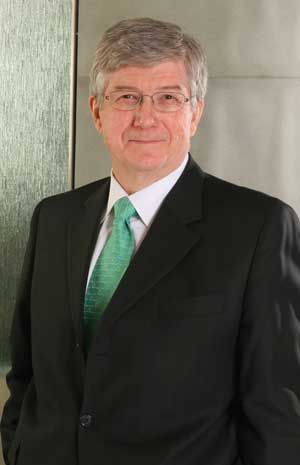The Law Society of Upper Canada will dip into its cash reserves to fund the extra startup costs of paralegal regulation, after it announced that the initial costs of regulating the paralegal profession will exceed projected revenues by $1.5 million.

Convocation voted last month to authorize spending of paralegal startup expenditures from the cash reserves of the law society’s general fund on the condition that paralegals will be expected to repay the loan, with interest, over a reasonable period of time.
Suggestions for repayment by the finance and audit committee include a possible surcharge for paralegal licensees beginning in 2009, which could result in repayment of the $1.5 million in 15 years if each paralegal paid an extra $100 per year.
Total startup costs for launching the paralegal regulation process are projected to be just over $3.4 million, with revenues from candidate examinations expected to bring in $600,000 this year and $1.3 million in the first quarter of 2008.
Of those costs, $2.4 million are projected for this year alone, but the law society is expecting a profit of nearly $900,000 in early 2008, leaving a shortfall of $1.5 million.
Committee chairman Derry Millar told Convocation the law society has sought funding for the startup from the province, but had not heard back as of the last committee meeting.
He added that the committee is not expecting to hear anything until the provincial budget, which is expected some time this month.
“Really, where the money, it seems to me, should come from is from the province. And so we’ve requested funds from the province,” said Millar, adding that they do not know if they will receive it.
The startup budget is designed to cover the costs of paralegal regulation through early 2008, when actual numbers of paralegal licences are known and a budget outlining regular operating costs will be part of the LSUC’s annual budget.
Paul Dray, chairman of the paralegal standing committee, told Convocation that as the law society is no longer just the regulator of lawyers, but the regulator of legal service providers in the province, it is a big change that everyone has to get their head around.
“We are now responsible at the society for licensing legal services,” said Millar.
However, some members of Convocation voiced concern about lawyers contributing to the cost of launching paralegal regulation.
Bencher Carole Curtis said, “It’s just wrong in principle that lawyers should pay for this.”
Along with the startup budget, Convocation also approved the criteria for paralegals seeking grandparent or transitional status, which includes those who have been working in the field for three out of the last five years, or those who have some education or experience relevant to the paralegal qualification.
The first paralegal licences will be granted in early 2008, and paralegals who are eligible can apply for grandparent status from May until October of this year.
Those who are not eligible under grandparent or transitional status will be considered under the permanent model, and will be eligible for licences beginning in 2009.
The law society is projecting it will receive 1,200 applications for grandparent status from paralegals this year, with 1,000 ultimately approved to write the licensing exam.
Some of the largest expenses in the startup budget for paralegal regulation are:
• $826,500 for the professional development and competence department to design, develop, and administer licensing examinations;
• $473,500 for related administration costs;
• $150,000 for the client service centre, including the complaints services group;
• $300,000 for legal services, including the development of new bylaws and re-drafting of existing bylaws to accommodate paralegals;
• $1,185,000 to professional regulation for counsel, policy and procedures development, investigations, discipline, and tribunals during the transition...
The professional regulation component includes an anticipated 60 good character hearings for grandparent applicants. Those will begin in the fall of 2007, and would require an additional lawyer in the discipline department.
The LSUC says it will also need more staff in human resources, complaints services, membership services, professional development and competence, and an additional lawyer for development of policy and procedures.

 Convocation voted last month to authorize spending of paralegal startup expenditures from the cash reserves of the law society’s general fund on the condition that paralegals will be expected to repay the loan, with interest, over a reasonable period of time.
Convocation voted last month to authorize spending of paralegal startup expenditures from the cash reserves of the law society’s general fund on the condition that paralegals will be expected to repay the loan, with interest, over a reasonable period of time.